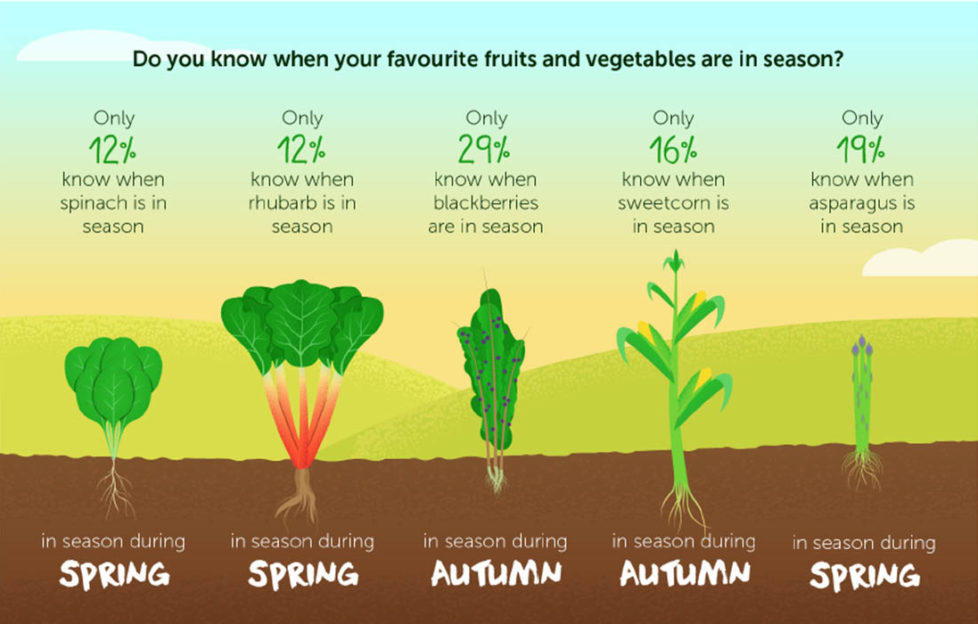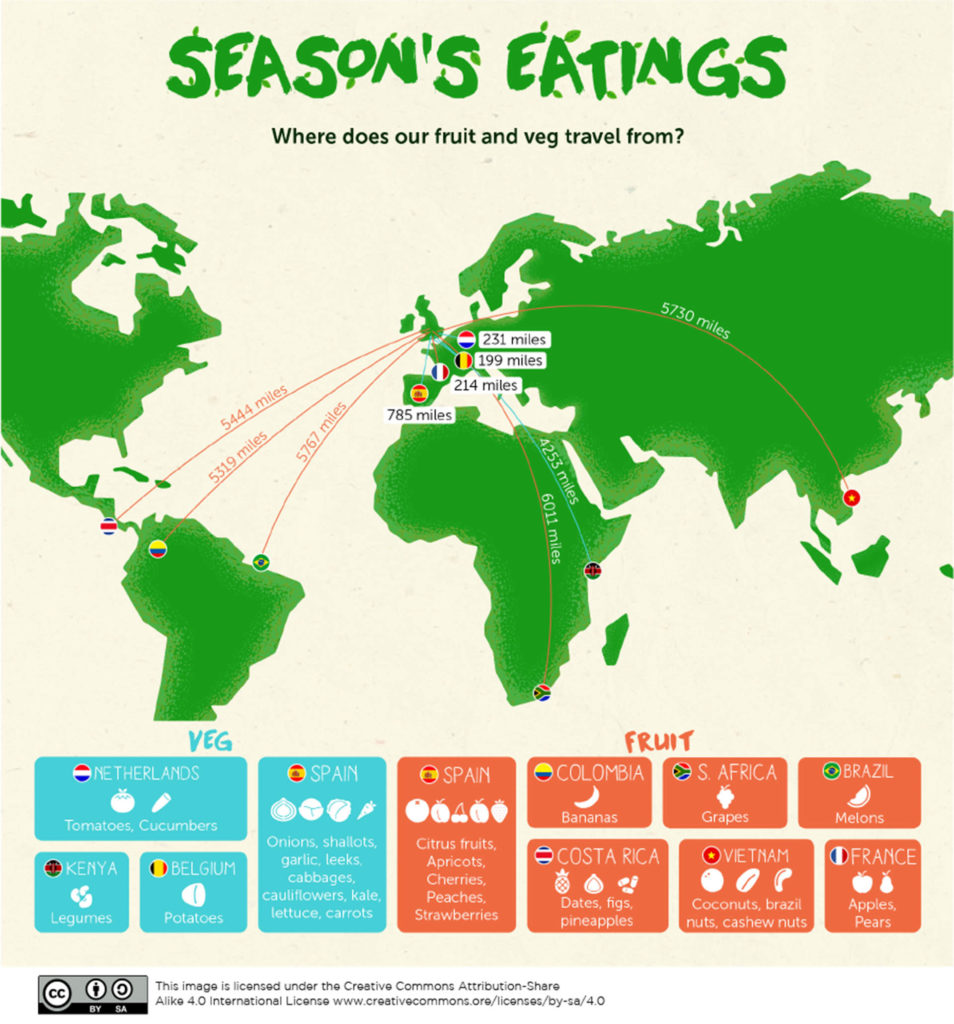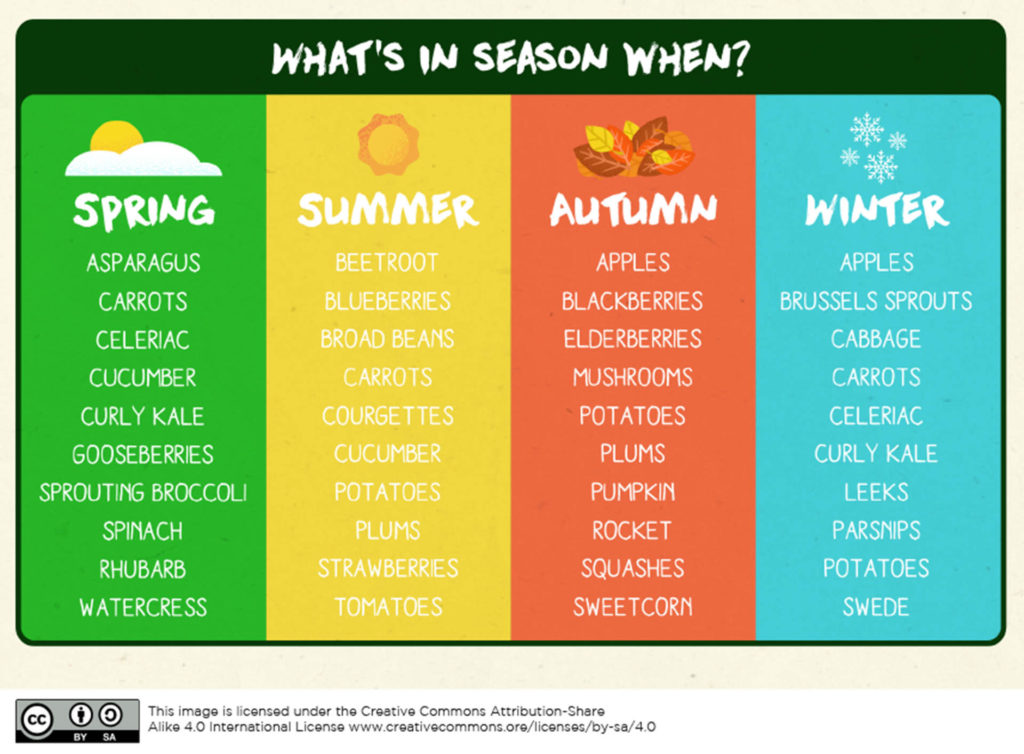Eat Seasonally – A Simple Way To Help The Planet

As the climate crisis escalates, more people are turning towards the simple philosophy of seasonal eating as a way to eat well without costing the Earth.
November marks World Vegan Month, and Magnet Kitchens have surveyed 2,000 people to find out how aware they are of seasonal eating. The results make for some interesting findings.
- 8 out of 10 say they have shopped seasonally
- However just 3 in 10 could say accurately when common fruit and vegetables were in season
- Only 16% knew sweetcorn is currently in its prime
- A comforting 61% know that tomatoes are ripe for the picking in summer.
Walking into our local supermarket, we will often take for granted the huge range of fruit and vegetables on offer, all year round. But have you ever considered the impact that buying your fruit and veg out of season may have?
Kitchen designers Magnet looked at where exactly our fruit and veg is travelling from, and the damaging airmiles totals being racked up, all in the name of choice.
‘Tis the season for… what?
But do you think you’d be able to say what’s in season when? To find out, Magnet surveyed 2,000 individuals, to find out if they could. What might be the impact of eating their asparagus in summer or their courgettes at Christmas?
An encouraging 8 out of 10 said they have shopped seasonally, or would like to. However when put to the test, only 3 out of 10 knew when common fruit and vegetables were actually in season.
Ever wondered what your dinner table would look like if you only ate seasonally? Magnet has put together a helpful guide so you can see what’s in season when. So now you can plan your shopping to suit.
We can all help reduce carbon emissions and eat sustainably by moving towards a seasonal diet, and eating produce that’s been grown closer to home.
The study also found that:
- The UK imported 30% of all its food from the EU in 2017
- Grapes rack up the highest air miles total – 6011 miles
- 26% of all carbon emissions come from food production and consumption
- Potatoes have the highest carbon footprint of any vegetable, at 2.9kg of CO2 per 1kg of potato
- Only 28% of people choose to each seasonally to help lower their carbon footprint.






